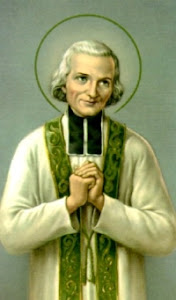There have been baseless accusations that have been aimed at the Church for her supposed actions during the second world war.
These accusations have been getting on my nerves as of late, so I've decided to get to the bottom of them.
They are like most arguments against the Church; they come from distorted facts and a lack of knowledge.
Please read the suggested books at the bottom of this article for more information.
Hitler's Christianity
Some say that Hitler was a Catholic until the day he died. This is a mere assumption, Hitler was simply raised in a Catholic family - a hardly practicing one.
Martin Luther was a born a Catholic, but he certainly did not practice the Catholic faith when he fell away from the true Church.
Just as Luther, Hitler rejected the Church when he grew older; the only difference is that Hitler rejected Christianity all together.
He(Hitler) can be quoted describing himself as a 'complete pagan'
Here are some more interesting quotes by Adolf Hitler; taken from the book
Hitler's Secret Conversations: 1941-1944:
27th February, 1942, midday:
It would always be disagreeable for me to go down to posterity as a man who made concessions in this field. I realize that man, in his imperfection, can commit innumerable errors-- but to devote myself deliberately to errors, that is something I cannot do. I shall never come personally to terms with the Christian lie. Our epoch Uin the next 200 yearse will certainly see the end of the disease of Christianity.... My regret will have been that I couldn't... behold its demise." (p 278)
14th October, 1941, midday: The best thing is to let Christianity die a natural death.... When understanding of the universe has become widespread... Christian doctrine will be convicted of absurdity.... Christianity has reached the peak of absurdity.... And that's why someday its structure will collapse.... ...the only way to get rid of Christianity is to allow it to die little by little.... Christianity [is] the liar.... We'll see to it that the Churches cannot spread abroad teachings in conflict with the interests of the State. (p 49-52)
Hitler's Hate for the Catholics
Besides Jews Hitler killed about 2-3 million Catholics. 25% of the Polish clergy also were killed.
Among these was the great polish martyr St. Maximilian Kolbe who was sent to Auschwitz and murdered with carbolic acid.
Hitler's Excommunication
Some People say that the Church did not excommunicate Hitler and thus committed a grievous error.
The problem with this argument is that it is a mere assumption.
It is not known whether or not the Church 'formally' excommunicated Hitler, but it is known that Hitler, by his own sins, was automatically excommunicated
ipso facto under canon law.
Another interesting point is that the conference of German bishops excommunicated all Nazis in 1930. And in the 1932 elections forbade Catholics to vote for a Nazi.
This hardly seems like the Church supporting Hitler...
Hitler and Pope Pius XIIMany accuse Pope Pius XII of collaborating with Hitler and the Nazis during WW2. Again these are simply baseless non-facts.
Here is the truth of Pope Pius XII and how he helped Catholic as well as Jews escape the ruthless hand of the Nazis.
In 1937, Pope Pius XI, Pope Pius XII predecessor, issued a papal encyclical condemning racism. When asked who was responsible, Pope Pius XI replied: “Thank him, he has done everything” while pointing to his secretary of state, Pope Pius XII, then Eugenio Pacelli.
After reading Hitler's
Mein Kampf, Pacelli called Hitler 'obsessed' and stated that he was a 'new manifestation' of the Anti-Christ.
Sounds like a real supporter of the Nazi cause.
As papal nuncio in Germany, Pacelli criticized the Nazis 40 times before 1929.
As secretary, he did sign an agreement with Hitler’s Germany in 1933 but he later stated that he had to do so or it would mean the “virtual elimination of the Catholic Church” in Germany.
In 1934, he protested the Nazis’ closing some 200 Catholic publications, taking over Church schools and forcing Catholics to join the Hitler Youth.
In 1935, he told 325,000 pilgrims at Lourdes that the “church will never come to terms with Nazis as long as they persist in their racial philosophy.”
Throughout 1936 and thereafter, his Vatican Radio broadcast against these racial laws.
On Jan. 9, 1939, Pacelli told the world’s archbishops that their governments should accept Jews trying to escape Germany.
When he became pope, Pecelli's first papal encyclical defining human nature, stating that it(human nature) is "neither gentile nor Jew."
On Oct. 28, 1939, the New York Times explained: “Pope condemns dictators, treaty violators, racism.”
On Jan. 23, 1940, "Vatican denounces atrocities in Poland; Germans called even worse than Russians.”
On March 14, 1940, “Pope is emphatic about just peace: Jewish rights defended.”
In 1940, Pius sent a secret letter telling bishops to help those suffering from racism, reminding them racism is “incompatible with the teachings of the Catholic Church.”
This pope hardly seems to be supporting the cause of Hitler...
ConclusionAs a conclusion I would like to cite a famous quote from ArchBishop Fulton J. Sheen:
“In this country you could not find a hundred people who hate the Catholic Church, but you can find uncounted millions who hate what they mistakenly believe the Church to be.”
Suggested for Reading:Gajewski, Karol Jozef. “Nazi Policy and the Catholic Church.” Inside the Vatican (November 1999).
The Myth of Hitler’s Pope: How Pope Pius XII Rescued Jews from the Nazis, by Rabbi David G. Dalin






